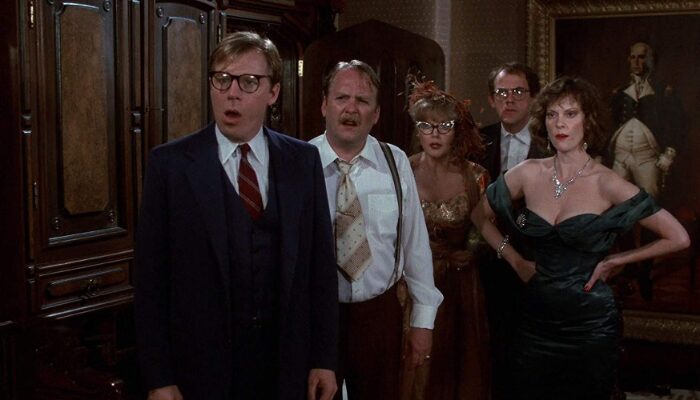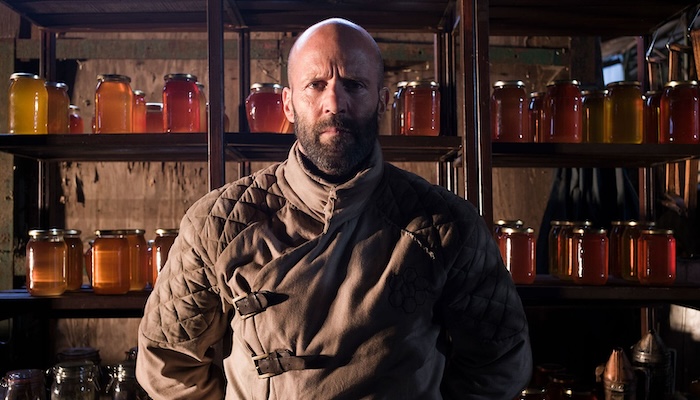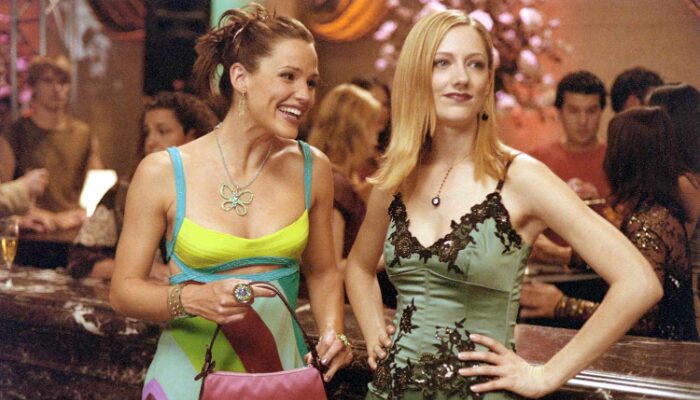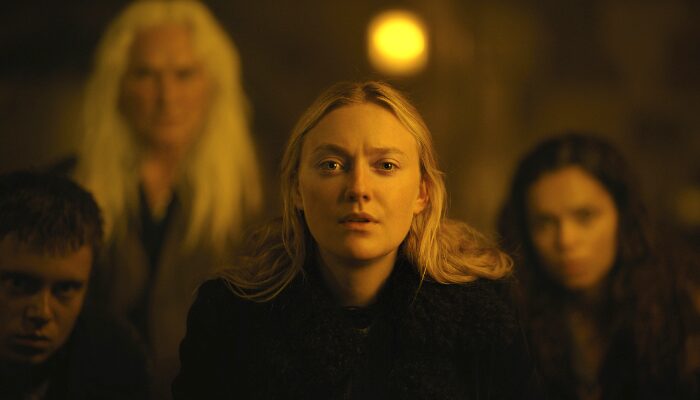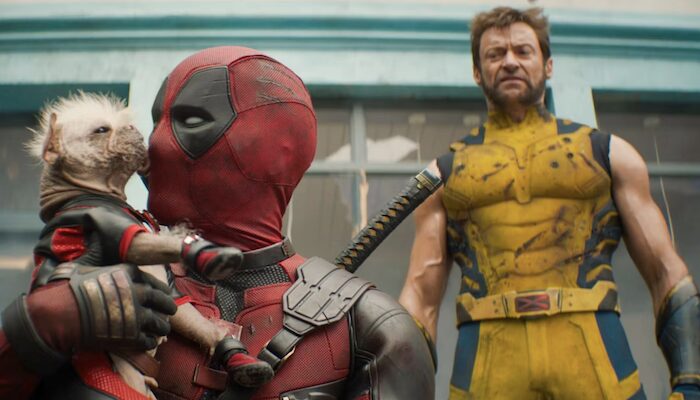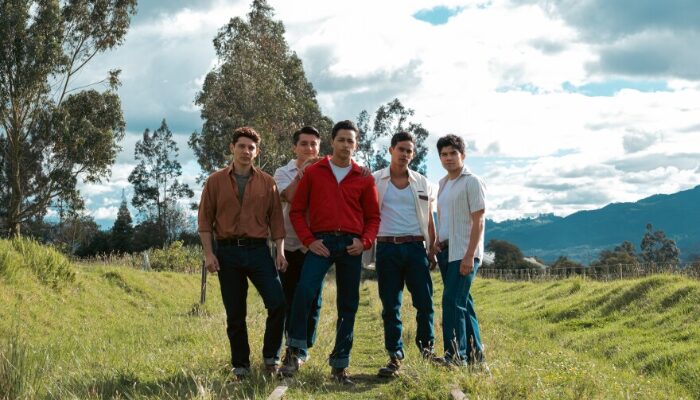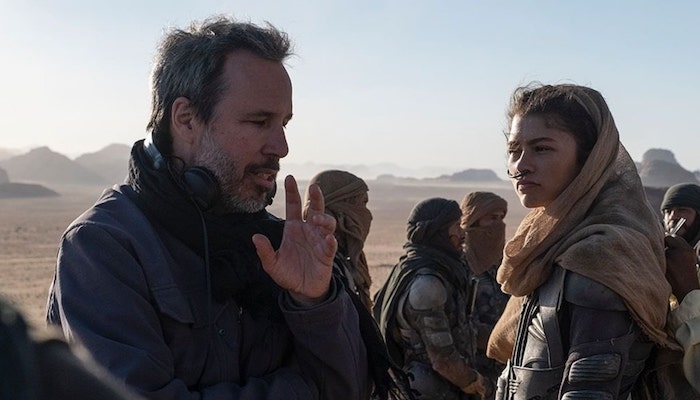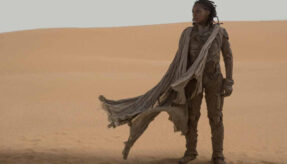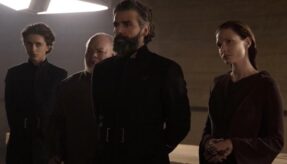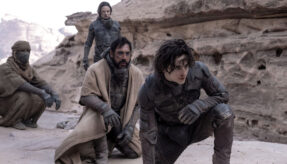Director Denis Villeneuve Reflects on Filming DUNE & Bringing Frank Herbert’s Universe to Life
Denis Villeneuve shares thoughts on his opus and what it means to him.
This is the second feature film based on Frank Herbert’s seminal work, in addition to a limited series for television. Though it is fair to say that the initial reactions to Villeneuve’s rendition of Dune have been mixed, the opinions expressed so far have been generally pretty good ones. Most, if not all, of the critics agree that its strengths are the cinematography and production design.
So far the main criticism shared by most is that nothing new is added to the narrative, but the consensus opinion so far is that the pacing does not much distract from enjoying the film overall. Villeneuve, however, feels differently. Blade Runner 2049, despite its critical acclaim, did not yield the box office bonanza he had apparently hoped for. Villeneuve conveys such finesse on the screen that he manages to convey even abstract messages from inference alone. Arrival, under his direction, based on Ted Chiang’s short story, is a perfect example.
But Villeneuve wants to correct his “mistake” by putting a ‘pop’ spin on Dune and reach a wider audience. Considering his deft touch, Villeneuve’s dogged focus on appealing to the pop culture, particularly the youth, is curious. The book is already YA many respects: a boy in his teens, diligently prepared for the aristocratic authority which, ironically, also protects him from the “real” world–in this case, Arrakis. There’s plenty of angst in the source work, teenage and otherwise, to go around. Villeneuve himself takes on a fair share of it, by report, fearing for his bankability.
On the other hand, it’s not for nothing that the Dune franchise has also earned its place among the classics of “soft” science fiction for adults as well. The books alone have garnered a huge following over the decades. It is safe to say that the fans of the franchise are generally ready for another adventure into that universe.
Frankly, in strict terms of “hard” science fiction–or hard science itself for that matter–and assuming the same physical laws apply in the Dune Universe, Arrakis could never support human life. (I’m not sure about the worms.) But in the long run this doesn’t matter. It’s no great trial to take Arrakis purely as a symbol; it stands up very well enough to convey the ingenious treatment of themes and plot devices of the books. Certainly the panorama of Arrakis appealed to filmmakers as much as the author before them.
Villeneuve especially cites particulars when it came to building his own vision of the Padishah Empire. Like Herbert himself, the director had an affinity for Lawrence of Arabia, based on the autobiography of T. E. Lawrence, whose life provided enough intrigue for several screen epics. Herbert’s exhaustive research provided plenty of facts on which the world of Arrakis is clearly based. To name two among many, there are the Bedouin-like Fremen, and the patois, such as “jihad” and the spice “melange” (French for “mixed”).
Villeneuve pondered how to present the Vladimir Harkonnen’s character and discussed it with his co-writers, Jon Spaihts and Eric Roth: “To try to find this shape, it came at one point to muscularity, to feel the power.” But “muscularity” is not a word that springs to mind when picturing the Baron. So, a wily, duplicitous politician hopefully arises from this obscure quote, as opposed to David Lynch‘s bellowing, pustular monstrosity.
In contrast, the television mini-series Frank Herbert’s Dune directed by John Harrison, released in 2000, comes pretty close in portraying the novel’s description of the fat Baron. Ian McNeice‘s layered performance here is one tough act to follow, and it will be interesting to see if Stellan Skarsgard can manage it.
Villeneuve evidently also paid special attention to Paul’s visions, a phenomenon that the coming-of-age Paul must “decode” and learn to understand. In this there is a general agreement of all those who transformed the novel to the screen. In fact, fellow author Ursula Le Guin credits the influence of Herbert in her own work, and as such may have contributed to the element of lucid dreaming in “The Lathe of Heaven” and “The Word for World is Forest.” Lynch, grand master of dream-logic imagery that he is, chose to treat Paul’s reveries lightly.
Little, if anything, has been said with respect to the appearance of the Guild Navigators. The novels provide some description, incisive but spare, but evidently subject to wide interpretation. The productions thus far show these mutated space-folding humans as looking very different. Lynch imagined something practically protozoan; Harrison saw a humanoid with webbed appendages, resembling that depicted in the graphic collection, “Barlowe’s Guide to Extraterrestrials.”
This film encompasses the first half of the novel, in which Feyd-Rautha and other central characters have yet to appear to challenge Paul Atreides growing into the prophesied messiah in the second half. Villeneuve’s decision to divide the story was a wise one; clear narrative can only complement the multi-faceted Dune universe.
As for Villeneuve’s concern for the bottom line: true enough, Big Business has hampered more than one filmmaker’s reputation, even buried some. But based on this director’s accomplishments, and the team he’s assembled, his vision of Dune should more than pass muster.
Leave your thoughts on Denis Villeneuve and his thoughts on filming Dune below in the comments section. Readers seeking to support this type of content can visit our Patreon Page and become one of FilmBook’s patrons. Readers seeking more movie news can visit our Movie News Page, our Movie News Twitter Page, and our Movie News Facebook Page.
Dune will be released in U.S. through Warner Brothers on October 22, 2021. Want up-to-the-minute notifications? FilmBook staff members publish articles by Email, Twitter, Facebook, Instagram, Tumblr, Pinterest, Reddit, and Flipboard. This news was brought to our attention by Indiewire.
Related Articles
FilmBook's Newsletter
Subscribe to FilmBook’s Daily Newsletter for the latest news!

